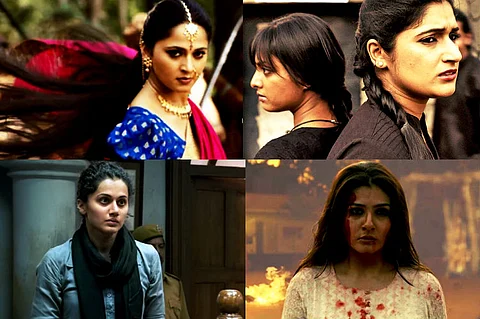

On Friday, the verdict delivered by the Supreme Court in the horrific December 16 gangrape case in Delhi which shook the nation, brought to an end a painful chapter in the country's hall of shame when it comes to women's rights. The victim Jyoti Singh was called by different names in the media but the one that stuck is Nirbhaya - Fearless.
Over four years since the incident, the rate of violent and brutal crimes against women has only gone up. Being fearless, then, is still a distant fantasy for most Indian women. Does this mean that all that outraging was of no use?
Not at all. The discussions, conversations, and protests sparked by the Nirbhaya case did something vital - it brought subjects like victim-blaming, slut-shaming and consent out to the open, breaking out of the small academic circles where such topics were usually talked about among the already converted.
There are several pertinent questions that people have time and again raised about the protests that followed the Nirbhaya case - why then and why not before or later? Why her and why not someone else? What have we done to make life better for rape victims since? These are important questions that reveal a lot about who we are as a society and they must be asked and answered honestly if we're to arrive at any kind of understanding about sexual violence against women.
However, what the Jyoti Singh case did was to enable women to talk about an issue that was considered to be shameful until then. Social media at the time was full of women writing about their own experiences of violation. Previously, they might have spoken about this within their friend circle but not on a public platform like Facebook which had their family and colleagues on it. Suddenly, the world recognised survivors as heroes and not objects of shame and ridicule. These narratives were not only expressions of solidarity, they also brought to light how common an experience sexual violence was in the country.
The change in the public mood - not nuanced, largely half-baked and yet a change nevertheless - soon spilt into popular culture. Indian film industries have usually treated the rape victim as an object of pity. She either conveniently committed suicide after the rape or existed only so the hero could avenge her loss of "honour". There have been very few films where a victim is shown with any kind of agency to stand up for herself - Mirch Masala in Bollywood, 22 Female Kottayam from the Malayalam industry and Adalat o Ekti Meye from the Bengali industry, for instance.
However, post 2012, there have been a slew of mainstream films which have taken up violence against women as a subject. With a woman as its hero. The most recent addition to this list is Maatr, which has Raveena Tandon avenging two brutal gangrapes - hers and her daughter's. Like Jazbaa, the Shabana Azmi and Aishwarya Rai starrer, and Angry Indian Goddesses, Maatr too offers vigilante justice as the solution.
In Maardani, a film about child trafficking, Rani Mukherji leaves the young girls who'd been repeatedly exploited to finish off the main villain, with stilettos no less. Akira, a remake of a Tamil film, saw the director replacing the male lead's role from the original with a woman's (Sonakshi Sinha). Akira learns martial arts after witnessing a brutal acid attack and learns to stand up for herself.
Naam Shabana has a heroine who kills her father as a teenager when she sees him assaulting her mother. The actor playing this role was Taapsee Pannu who shot to fame after Pink, a film that boomed out the message loud and clear in Amitabh Bachchan's inimitable voice that no matter what, it wasn't the woman's fault.
NH 10 had Anushka Sharma deliver death blows to the men who'd killed her husband - a neat reversal of roles. Phobia saw Radhika Apte playing an assault victim who kills her abusive male friend. Kahaani 2 had Vidya Balan rescuing a child rape victim from her abusive uncle and eventually murdering him.
And why, even Baahubali 2 has a Devasena who chops off the fingers off the man who tries to molest her, earning the crowd's cheers.
The Kannada industry recently saw the release of Shuddhi and Urvi, both films with women as the heroes combating gender violence.
Now, not all these portrayals are well thought out, some of them are indeed very problematic - but the point is, the mainstream film has embraced a new character and that is the woman avenger. It has become acceptable for us to have a character who has lost her "honour" fight back; it has become acceptable for us to see her as a hero, someone we support, someone we root for. She no longer needs to be finished off in the story because the audience recognises that she has potential. She is no longer sidelined to the world of parallel cinema.
We still have a long way to go when it comes to conversations on rape and rape culture. In the meantime, some of us can take solace in the cathartic relief that the big screen offers us, one stiletto at a time, even if it changes absolutely nothing on ground.